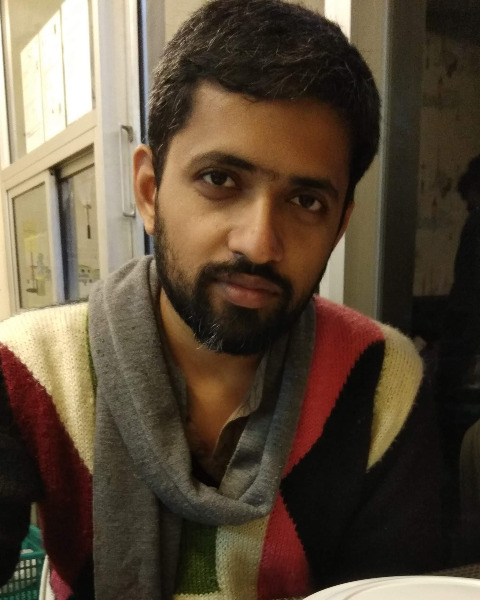Theme: 4. Seeing from the Neighbourhood: States, Communities and Human Mobility
Urbanity and the Uncanny: Cases on Delhi
-

Anubhav Pradhan
Department of Liberal Arts, Indian Institute of Technology Bhilai, India
-

Anubhav Pradhan
Department of Liberal Arts, Indian Institute of Technology Bhilai, India
-
DD
Deepanwita Dey
Department of Liberal Arts, Indian Institute of Technology Bhilai, India
-

Anubhav Pradhan
Department of Liberal Arts, Indian Institute of Technology Bhilai, India
-
NF
Nooreen Fatima
School of Arts and Sciences, Rutgers University-Newark, United States
-
AS
Anandit Sachdev
Jindal School of Art and Archiecture, O.P. Jindal Global University, India
-
PS
Papia Sengupta
Jawaharlal Nehru University, India
Panel Convenor(s)
Panel Chair(s)
Panel Discussant(s)
Presenter(s)
Urbanity and the Uncanny: Cases on Delhi Call for Abstracts towards panel proposal for International Convention of Asia Scholars 13 Cities can often be obscure, dense places, porous but simultaneously difficult to penetrate. Their scale breeds anonymity, an unknowability which pervades the tangible and the intangible, the epistemic and the experiential. With its roots in modern industrial capital and bolstered recurrently by the exigencies of nationalism, the urban everyday today is generative of the uncanny in many ways: outlandish happenstances, chance encounters, accidents and deaths, all within the ambit of day’s work in a city. Its strangeness, its violence to its own constituting elements, its chiaroscuro of light and dark, all of these make urban experience multilayered and dependent upon the gaze and perspective being prioritised as hegemonic and normative. The urban uncanny take various forms and may be understood multifariously. The past, ever-present, is a spectre which haunts many cities with insistent forebodings of unwelcome returns, goading fearsome second comings to arise into being. Capital too is a potent source of the uncanniness which characterises much of urban life, its circulation, accumulation, and consolidation marked by processes which imbue it with an element of risk and fear. Consumption, which is symbiotically enmeshed with capital, is almost inescapably constituted by the horrors of scarcity even as it is wary to a measure of gluttonous excess. Processes of urban governance, planning, healthcare, waste management, and heritage development, amongst others, are all inflected by multiple conflicting affective regimes—the uncanny is a significant part of these. This panel is interested in these and other forms of the uncanny which lie at the heart of these urban processes, with a specific focus on Delhi. What happens to urban policy-making and lived experience when over generations low-income settlements—bastis and resettlement colonies, for example—are imagined in claustrophobic metaphors? Does the afterlife of eviction involve any lingering presence of absence, millions of lives displaced and dispossessed? How do crime and unrest leave imprints which are not just cultural but also spatial, breathing new tensions and fears in everyday acts of work and rest? We are interested in these and similar questions of infrastructural immobility, memories of civic and communal violence, neighbourly dread and fatigue, everything which unsettles the urban experience in ways which keeps it together. Sources and methods proposed are interdisciplinary, in order for such an exercise to be meaningful. Presenter: Anubhav Pradhan – Department of Liberal Arts, Indian Institute of Technology Bhilai Presenter: Nooreen Fatima – School of Arts and Sciences, Rutgers University-Newark Presenter: Anandit Sachdev – Jindal School of Art and Archiecture, O.P. Jindal Global University Presenter: Papia Sengupta – Jawaharlal Nehru UniversityPresentations:

.png)